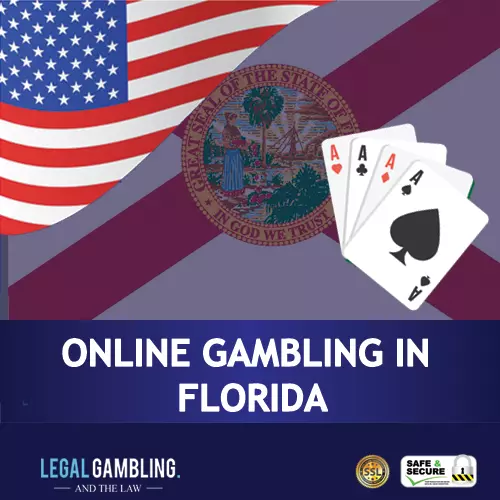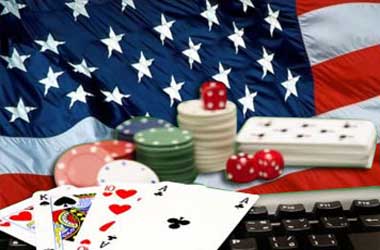Gambling In The United States
- Gambling Sites In The United States
- Legalized Online Gambling In The United States
- Casino Gambling In The United States
- Gambling Laws In The United States
Legal US Gambling Sites We’ve all experienced the magic of the internet at one point or another – seriously, nothing beats 1-day Amazon delivery right to your doorstep! With the internet and all of. History And Guide To Legal Online Gambling In The United States. The first legal of online poker only permitted tournaments.

Online gambling is an all-purpose idiom for gambling activities over the Internet.
Gambling Sites In The United States
The online gambling industry has grown from mere millions, to an estimated $20-$50 billion per year in revenues, in less than a decade. There are approximately 20-30,000 active websites serving Internet gaming activities.1 The United States is currently in an area of ambiguity when it comes to the laws surrounding online gambling.
Online, or Internet gambling is a rather broad term, for it umbrellas a wide span of gambling activities. Online gambling includes 1) Online Poker for card games such as Texas Hold ‘em, Omaha, Seven-card Stud, etc. These games are played against other players; the hosting site collects a “rake” and various tournament fees. 2) Online casinos are sites that offer casino games like blackjack, pachinko, roulette, baccarat, etc. These games are played against the “house” or the site hosting the game(s). The house has favored odds for these games, enabling the site to profit. 3) Online sports betting includes bookmakers, betting exchanges, and spread betting firms. These sites facilitate betting on a wide array of sporting events; the most prevalent for this type is fixed-odds gambling. Online gambling also includes 4) online bingo and 5) mobile gambling, or gambling using a wireless mobile device.

To gamble on these sites requires a money transfer to the hosting company. After the funds are in the player’s account, the member is able to play the games offered. Winnings can be cashed out back onto credit/ debit cards, by cheque, and by wire transfer. Additionally, electronic money services provide funding options though sites like Neteller, Moneybookers, and FirePay. These sites have recently discontinued service for residents in the United States. The majority of U.S. banks are also disallowing use of domestic accounts for online gambling. These prohibitions are primarily caused by the recent legal storm related to gambling over the Internet.
The legal discrepancies of online gambling in the U.S. are currently the cause of controversy that extends around the globe. Since many of these gaming sites are located outside of the U.S., and many foreign nations (for example, most European Union members and a number of countries in and around the Carribean Sea) legally allow and regulate online gambling2, international trade conflicts—like Antigua and Barbuda’s $3.4 billion in trade sanctions filed against the U.S. in 2007 (see WTO Dispute (below))3—have naturally arisen. The legality of online gambling in the U.S. currently lies in an area of ambiguity. Efforts taken to explicitly ban online gambling through legislation have been unsuccessful due to the potential impact on a large area of segments like ISPs, state governments, and various portions of the gaming industry.
At present, there is a clashing of U.S. Department of Justice ideas with the opinions of a number of U.S. courts on whether or not online gambling is legal in the U.S. The two main issues analyzed are the U.S. Wire Act4 of 1961, and the Professional and Amateur Sports Protection act of 1992 (PASPA). PASPA instituted a ban on sports betting in all states that do not already have this type of business operation (Deleware, Nevada, and Oregon).
3.1 The Federal Wire Act
During the earlier Clinton and Bush administrations, the Justice Department declared the Wire Act applicable to all types of online gambling, making this kind of gaming illegal under current statute. However, in Thompson v. MasterCard International et al.5, the Fifth Circuit U.S. Court of Appeals in 2002 affirmed a lower court ruling, deciding that federal statutes illegalized Internet sports betting, but online casino gambling is in fact legal6, for “‘in plain language’ [the Wire Act] does not prohibit Internet gambling on a game of chance.”
3.2 The Unlawful Internet Gambling Enforcement Act (UIGEA)
The Unlawful Internet Gambling Enforcement Act (UIGEA) was amended to the SAFE Port Act (unrelated to gaming), in September 2006. The legislation was signed in October 13, 2006 by President George W. Bush7, who did not mention the gambling clause endorsed by the National Football League, yet the details of the bill were contested by banks. The law requires banks to prevent money from being used for online gambling. Following the UIGEA’s incumbent implementation, many Internet gambling enterprises including Sportingbet, PartyGaming, Bwin, and Cassava Enterprises suffered a large economic hit after announcing their withdrawal from operations for U.S. customers. PartyPoker.com, run by PartyGaming Plc, suffered almost a 60% stock plummet within 24 hours due to the new bill.8 Other sites including Full Tilt Poker, Bodog, PokerStars, and World Sports Exchange (WSEX) publicized their objective to maintain service to U.S. customers. The controversy over the UIGEA is that the 2008 regulations910 for “unlawful Internet gambling” is not actually defined within the document.11
On November 27, 2009, required compliance with the UIGEA was extended six months until June 1, 2010, announced by Department of the Treasury Secretary Timothy F. Geithner and Federal Reserve Chairman Ben S. Bernanke.
3.3 State Law
Since federal law does not govern online gaming laws, any prohibitions are left to individual states. See the State Gambling Law Summary chart for specific details of gambling regulations for each state listed. Some states have already made gambling over the Internet illegal.
3.4 The Internet Gambling Regulation, Consumer Protection, and Enforcement Act
First released on April 26, 2007, then re-introduced by Congressman Barney Frank (D-MA) in May 2009, The Internet Gambling Regulation, Consumer Protection, and Enforcement Act (H.R. 2267) is attempting to retract the Internet gambling impediments of the UIGEA. The bill seeks to extend protection to Americans from fraud (a prevalent issue in online gaming), and also to safeguard underage and problem gamblers. At the same time, Congressman McDermott (D-WA) re-introduced the Internet Gambling Regulation and Tax Enforcement Act to govern the collection of taxes from regulated online gaming.12 Congressman Frank also launched a bill to postpone the UIGEA’s official implementation for one year, until Dec. 1, 2010.13
3.5 Skill Game Protection Act
Introduced on June 7, 2007 by Rep. Robert Wexler (D-FL), the Skill Game Protection Act seeks to legalize online poker, chess, bridge, and numerous other games of skill.
3.6 Internet Gambling Regulation and Tax Enforcement Act
On the same day (June 7, 2007), H.R. 2607 The Internet Gambling Regulation and Tax Enforcement Act (IGRTEA) was introduced by Rep. Jim McDermott (D-WA). The act’s fundamental modus operandi is to legislate Internet gambling tax collection obligations. It is estimated that over the next ten years, the pending tax legislation will produce nearly $42 billion. The notion gives cause to provide licensing for Internet gambling site operators in the U.S., although the provision does not extend to include sports betting.14
3.7 Internet Skill Game Licensing and Control Act (S.3616)


Introduced on September 26, 2008, the Internet Skill Game Licensing and Control Act is the first bill associated with Internet “skill games” to reach the Senate. S.3616 would amend title 31 (United States Code) to afford law for licensing online skill game sites.
4.1 WTO Dispute
The UIGEA amendment to the SAFE Port Act sparked the World Trade Organization (WTO) dispute between Antigua and the United States. The WTO’s final ruling (confirmed March 30, 200715)stated that the U.S. is in breach of treaty contract by refusing to allow full market access to Internet gambling companies based in Antigua.16 The island nation’s claim for $3.4 billion in trade sanctions, in addition to a request filed for sanction to disregard U.S. patent and copyright laws, followed similar demands for compensation made by the European Union.
4.2 Controversy
The dispute ended with payment of U.S. concessions. Although the Bush Administration refused to release details of the concessions, Congressmen Ron Paul and Barney Frank declared that these payments “could cost the United States many billions of dollars in compensation” in addition to the administrations “misuse of the Freedom of Information Act process.” The administration claimed “national security” under the Freedom of Information Act was cause to prevent the disclosure details of the concessions.17 UIGEA legislation is most disputed among the financial services sector, for the requirements of the act are unclear and burdensome in an effort to thwart unlawful Internet gaming transactions.
4.3 Poker Players Alliance (PPA)
The Poker Players Alliance (PPA) has put together $3 million (as of April 20, 2009) in donations to fight the UIGEA. The funds will be used by [wikipedia: Alfonse_D'Amato Alfonse D’Amato] (former U.S. senator) to fight for the group’s proposition before congress.18
As Internet laws continue to change, this article may need updating. This page is available for editing on WikiDot to anyone who becomes a WikiDot member (free) of the page. For additional files related to this article, please see the original author’s notes.
Legalized Online Gambling In The United States
Casino Gambling In The United States
